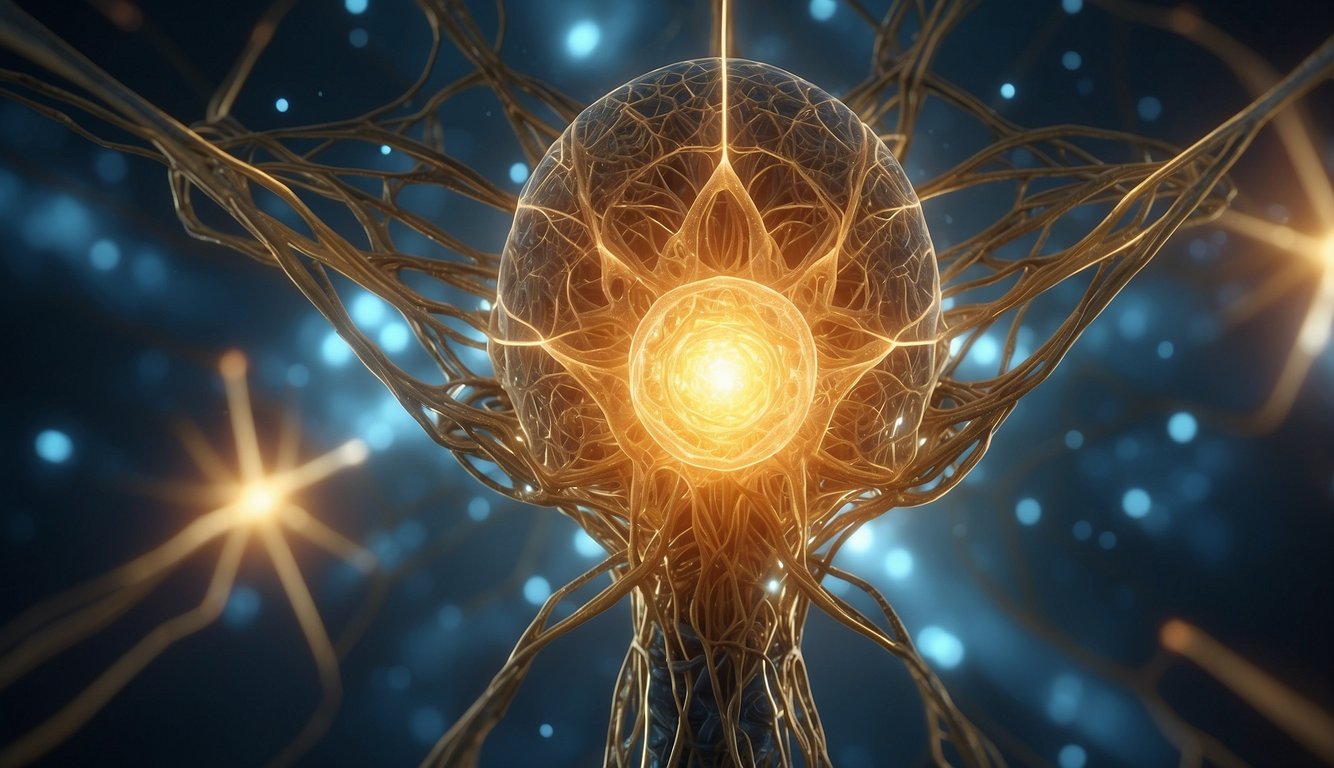TheHerbProf.com is a treasure trove of knowledge for those interested in natural healing and herbal remedies. The website is run by Paul Johnston MD. A naturopathic who has not only received extensive education in the field but also has personal experience in self-healing.
The pineal glandular (gland) is a small endocrine gland located in the brain of most vertebrates. Its primary function is to produce melatonin, a hormone that regulates sleep patterns following the diurnal cycles. The shape of the gland resembles a pine cone, which is why it is called the pineal gland.
The pineal gland plays a crucial role in regulating the circadian rhythm, including feeling tired and wakefulness. It does this through the secretion of melatonin. It also may play a role in regulating mood and protecting against oxidative stress. While the pineal gland is a relatively small gland, it has a significant impact on our overall health and well-being.
In this article, I will explore the function of the pineal gland in more detail, including its role in regulating sleep patterns and mood, as well as its potential health benefits. I will also discuss some of the ways in which we can support the health of our pineal gland, such as through diet, lifestyle changes, and supplementation.
Anatomy and Structure of the Pineal Gland
As a medical professional, I have studied the anatomy and structure of the pineal gland in detail. The pineal gland, also known as the epiphysis or pineal body, is a small endocrine gland located in the diencephalon of the brain. It is attached to the roof of the third ventricle, which is a fluid-filled cavity in the brain.
Location and Position – Pineal Glandular
The pineal gland is situated in the midline of the brain, between the two cerebral hemispheres. It is a pine cone-shaped structure, reddish-gray in color, and about the size of a grain of rice in humans. It is attached to the rest of the brain by a stalk called the pineal stalk. The gland is surrounded by the superior colliculi of the midbrain, which play an important role in vision.
Pineal Gland Cells and Parenchyma
The pineal gland is made up of pinealocytes, which are specialized cells that produce and secrete the hormone melatonin in response to low light levels. Melatonin helps regulate the body’s sleep-wake cycle and circadian rhythm. The pineal gland also contains other cell types, including interstitial cells, glial cells, and mast cells.
The parenchyma of the pineal gland is composed of lobules, which are separated by connective tissue septa. The lobules contain pinealocytes and are surrounded by a network of blood vessels. The gland also contains small, calcified structures called corpora arenacea or brain sand, which are thought to be remnants of degenerating pinealocytes.
The pineal gland is a small, pine cone-shaped endocrine gland located in the diencephalon of the brain. It is attached to the roof of the third ventricle and is made up of pinealocytes and other cell types. The gland produces and secretes the hormone melatonin in response to low light levels, which helps regulate the body’s sleep-wake cycle and circadian rhythm.
Physiological Functions – Pineal Glandular

The pineal gland is an endocrine gland located in the brain that plays a crucial role in regulating various physiological functions in the body. In this section, I will discuss the three main functions of the pineal gland.
Melatonin Production and Secretion – Pineal Glandular
The pineal gland is responsible for the production and secretion of the hormone melatonin, which is synthesized from serotonin. Melatonin is involved in regulating the sleep-wake cycle and plays a crucial role in maintaining normal circadian rhythms. According to a study published in the Journal of Pineal Research, the production of melatonin by the pineal gland is regulated by the suprachiasmatic nucleus (SCN) of the hypothalamus, which acts as a master clock in the brain.
Regulation of Circadian Rhythms
The pineal gland plays a crucial role in regulating the circadian rhythms of the body. Circadian rhythms are physical, mental, and behavioral changes that follow a 24-hour cycle and respond primarily to light and darkness in the environment. The SCN of the hypothalamus receives information about light exposure through the eyes and sends signals to the pineal gland to regulate the production and secretion of melatonin. Melatonin levels rise in the evening and remain high during the night, promoting sleep, while they decrease during the day, promoting wakefulness.
Influence on Puberty and Reproduction
The pineal gland is also involved in the regulation of puberty and reproduction. According to a study published in the Journal of Clinical Endocrinology and Metabolism, the pineal gland plays a crucial role in the timing of sexual development and the onset of puberty. The pineal gland secretes melatonin, which inhibits the secretion of gonadotropins, which are hormones that stimulate the production of sex hormones. This inhibition of gonadotropins delays the onset of puberty until the appropriate time.
The pineal gland is a small but crucial endocrine gland that plays a vital role in regulating various physiological functions in the body. Its functions include the production and secretion of melatonin, regulation of circadian rhythms, and influence on puberty and reproduction.
Melatonin and Anti-aging:
Research with old male rats who had poor appetite, no sexual drive, and scruffy fur had their pineal glands exchanged with the pineal glands of young rats. Within ten days an astounding transformation occurred: the old rats grew shiny fur, had great appetite, and chased female rats whenever the opportunity presented itself. The young rats aged at a rapid pace and looked and acted like old rats.
A powerful antioxidant as effective as vitamin C, vitamin E, and beta-carotene, melatonin is known to help prevent hypertension and heart attack and help reduce the risk of cancer. It is believed that as melatonin levels drop, aging speeds up. Melatonin can stimulate the immune system, and lead to the balance of hormones such as estrogen, testosterone, and other hormones. Also, Melatonin is also related to the cyclical response of the body to the fall of darkness at the end of each day. Also, Melatonin keeps our body in sync with the rhythms of day and night and helps us sleep.
How Much Melatonin Should I Take: Get Yours Here.
There are over 6,000 published studies on the use of melatonin and the general consensus is that it is safe in almost any dose, although the accepted daily dose is about 3 mg. Doctor Donsback states he personally takes 9 mg and all his cancer patients take 50 mg every night. There is about 2% of the population who react opposite to everyone else to melatonin; they are stimulated by its use. These people should take melatonin in the morning. The young should be making all the melatonin they need but if they are experiencing difficulties sleeping it would be prudent to try melatonin. Nature’s bounty is the best option. You can get it here.
Sublingual (dissolves under the tongue) is the best form, quickly absorbed. When you wake up the next day you should feel refreshed, not tired or groggy. As with all supplements, check with your physician before using.
Neuroendocrine Interactions – Pineal Glandular
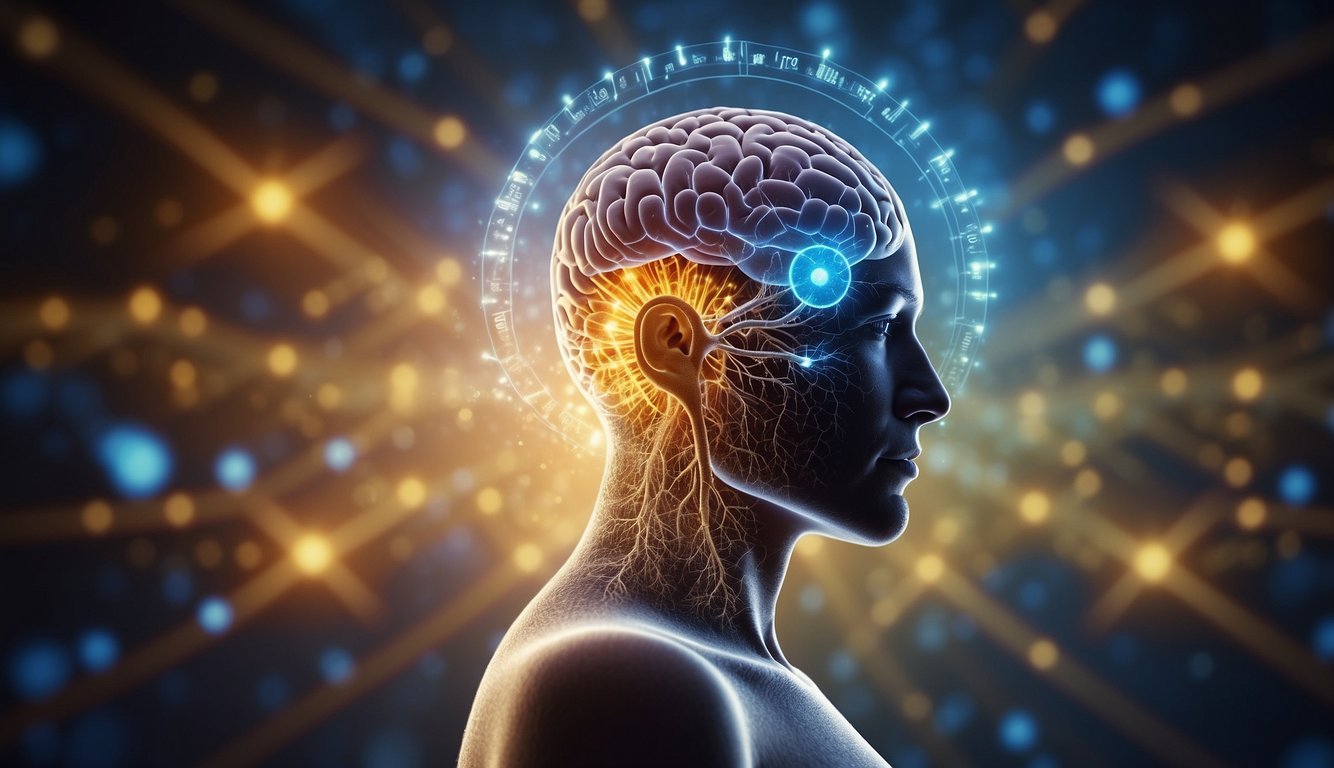
The pineal gland is closely linked to the hypothalamus and pituitary gland, and together they form a complex neuroendocrine system that regulates many physiological processes in the body.
Relationship with the Hypothalamus and Pituitary Gland – Pineal Glandular
The hypothalamus is a small region of the brain that plays a crucial role in regulating the autonomic nervous system and the endocrine system. It receives information from various sensory organs and sends signals to the pituitary gland to release hormones that regulate the activity of other endocrine glands in the body.
The pineal gland is also closely linked to the hypothalamus, and it receives signals from the suprachiasmatic nucleus (SCN), which is a group of cells in the hypothalamus that regulates the circadian rhythm. The SCN receives information about light and dark cycles from the retina via the retinohypothalamic tract, and it sends signals to the pineal gland to secrete melatonin, which helps to regulate the sleep-wake cycle.
Interaction with the Retina and Visual System
The pineal gland also interacts with the retina and the visual system. The retina contains photoreceptor cells that are sensitive to light, and they send signals to the SCN via the retinohypothalamic tract. This pathway helps to synchronize the circadian rhythm with the light-dark cycle.
The pineal gland also contains photoreceptor cells called pinealocytes, which are sensitive to light and regulate the secretion of melatonin. Pinealocytes produce melatonin in response to darkness, and they stop producing it in response to light.
The pineal gland plays a crucial role in the regulation of many physiological processes in the body, including the sleep-wake cycle, circadian rhythm, and endocrine system. Its close relationship with the hypothalamus and pituitary gland, as well as its interaction with the retina and visual system, make it an important target for further research into the neuroendocrine system.
Melatonin Breast and Prostate Cancer:
The less melatonin in the body the higher your chances of getting breast cancer. This was discovered when it was learned that women who worked night shifts had a significant increase in breast cancer. Men who work night shifts also suffer a higher incidence of cancer. A three hundred percent increase in prostate cancer in night working men.
Health and Pathology – Pineal Glandular
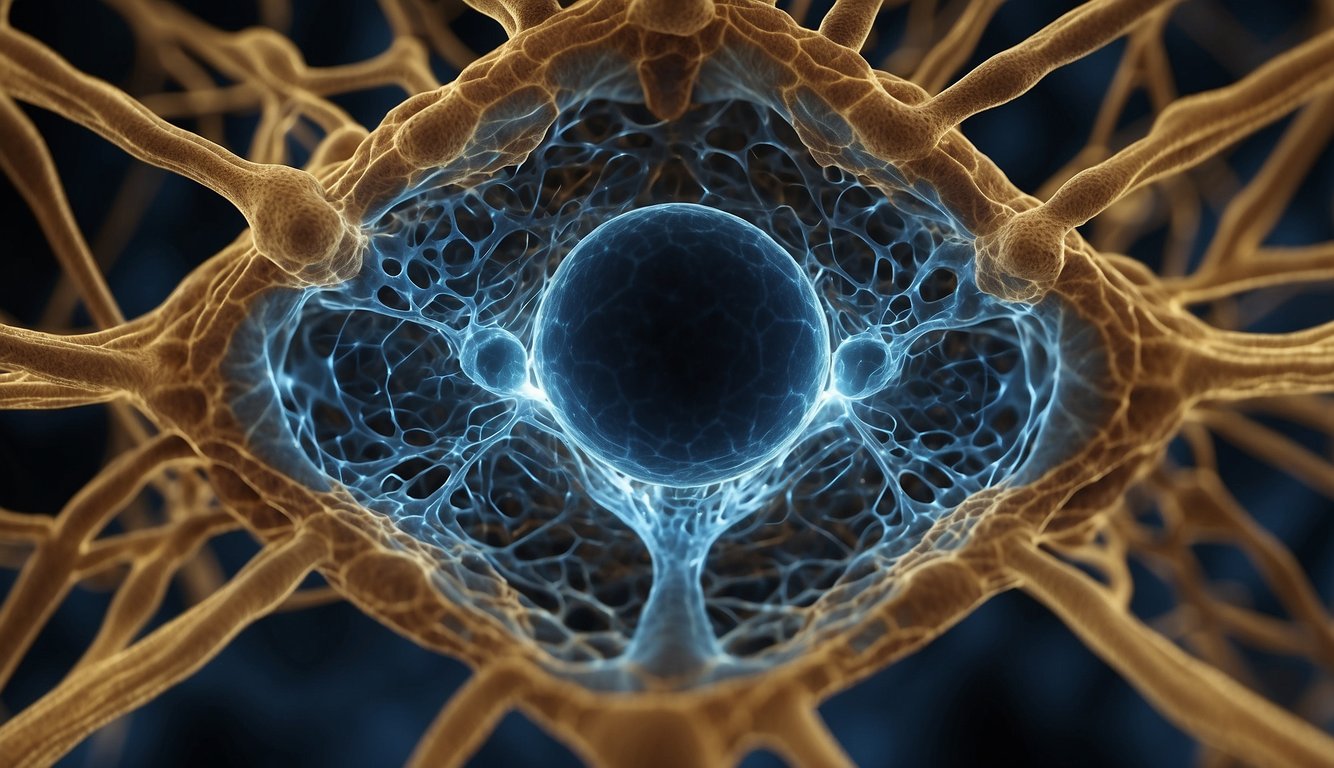
The pineal gland plays a crucial role in regulating our sleep-wake cycle by secreting the hormone melatonin. However, when the pineal gland is affected by tumors or calcification, it can lead to various health issues.
Pineal Gland Tumors and Calcification
Pineal gland tumors are rare, but when they occur, they can cause symptoms such as headaches, nausea, and vision problems. According to a research review, pineal gland tumors can be divided into three categories: germ cell tumors, pineal parenchymal tumors, and tumors arising from adjacent structures. Treatment options for pineal gland tumors include surgery, radiation therapy, and chemotherapy.
Calcification of the pineal gland is a common finding in older adults, and it can also occur in children. While calcification itself is not harmful, it has been associated with a higher risk of pineal gland tumors. In some cases, calcification can also lead to sleep disorders and depression.
Disorders Related to Melatonin Imbalance – Pineal Glandular
Melatonin supplements are often used to treat sleep disorders such as insomnia and jet lag. However, excessive use of melatonin supplements can lead to side effects such as headaches, nausea, and dizziness. It is important to consult with a healthcare provider before taking melatonin supplements.
Disorders related to melatonin imbalance can also occur when the pineal gland is not functioning properly. For example, precocious puberty can occur when the pineal gland produces too much melatonin, while seasonal affective disorder can occur when the pineal gland produces too little melatonin. Treatment options for these disorders may include light therapy or medication.
The pineal gland plays a crucial role in regulating our sleep-wake cycle and overall health. When the pineal gland is affected by tumors or calcification, it can lead to various health issues. Disorders related to melatonin imbalance can also occur when the pineal gland is not functioning properly. It is important to consult with a healthcare provider if you are experiencing any symptoms related to the pineal gland.
Diagnostic and Treatment Approaches
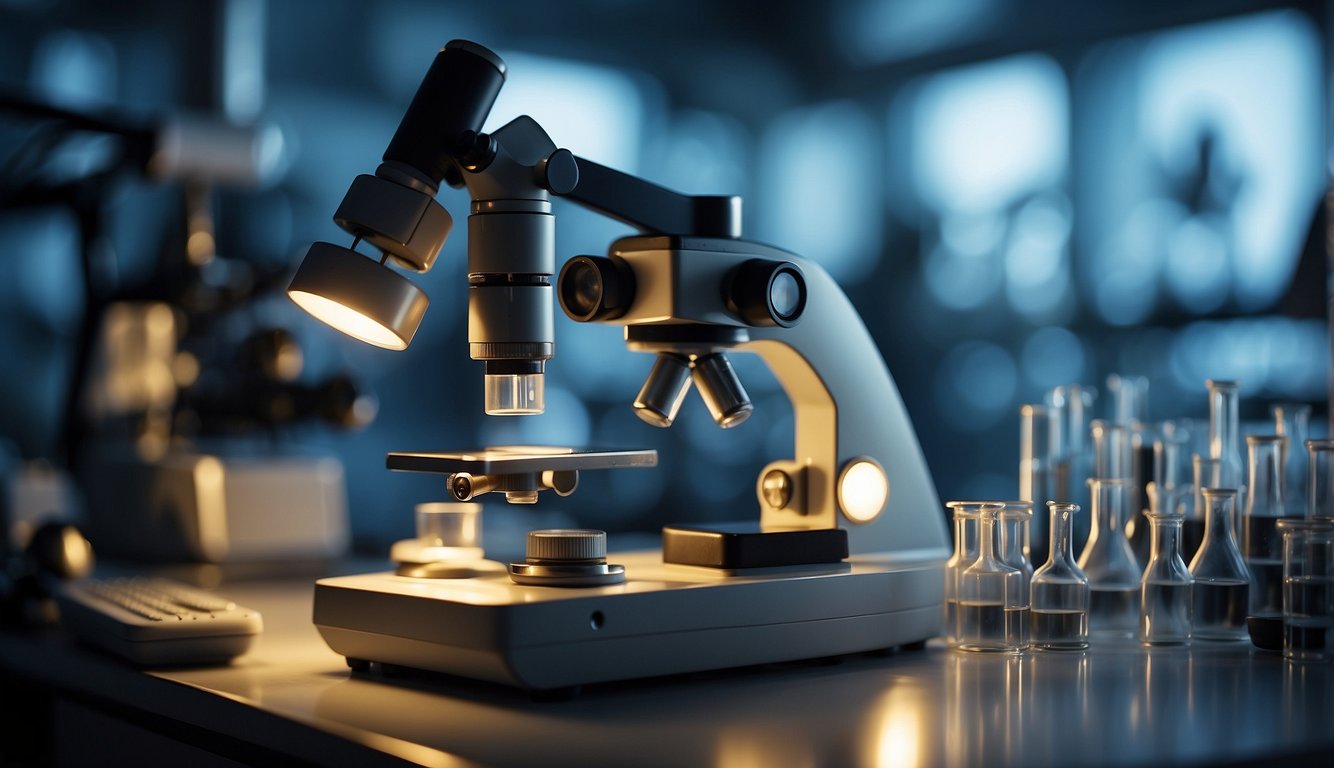
As a medical professional, I understand that diagnosing and treating pineal gland tumors can be challenging due to their rarity and location. However, with the use of imaging techniques and surgical interventions, we can accurately diagnose and treat these tumors.
Imaging Techniques and Diagnosis – Pineal Glandular
Imaging techniques such as X-rays, MRI, and CT scans are essential tools for diagnosing pineal gland tumors. X-rays are not commonly used since they do not provide detailed images of the pineal region. MRI is the preferred imaging technique since it provides high-resolution images of the pineal gland and surrounding structures. CT scans can also be useful, especially in cases where MRI is contraindicated.
Once imaging has identified a tumor, a biopsy may be necessary to determine the type of tumor. Biopsy can be performed with a stereotactic technique, which involves the use of a 3D coordinate system to locate the tumor. The biopsy can then be performed through a small incision in the skull.
Surgical Interventions and Therapies
Surgical intervention is a common treatment option for pineal gland tumors. The type of surgery depends on the size, location, and type of tumor. Pinealectomy, which involves the removal of the entire pineal gland, is a common surgical intervention for pineal gland tumors.
Chemotherapy and radiation therapy are also treatment options for pineal gland tumors. Chemotherapy can be used in cases where the tumor is malignant or has metastasized. Radiation therapy is often used in combination with surgery or chemotherapy to destroy any remaining tumor cells.
It is important to note that the pineal gland is connected to the brain via the pineal stalk. Therefore, any surgical intervention or therapy must be carefully planned to avoid damage to the surrounding structures and minimize the risk of complications.
Diagnosing and treating pineal gland tumors require a multidisciplinary approach. With the use of imaging techniques and surgical interventions, we can accurately diagnose and treat these tumors. It is crucial to tailor treatment to the specific type and location of the tumor to ensure the best possible outcome for the patient.
Historical and Cultural Perspectives – Pineal Glandular
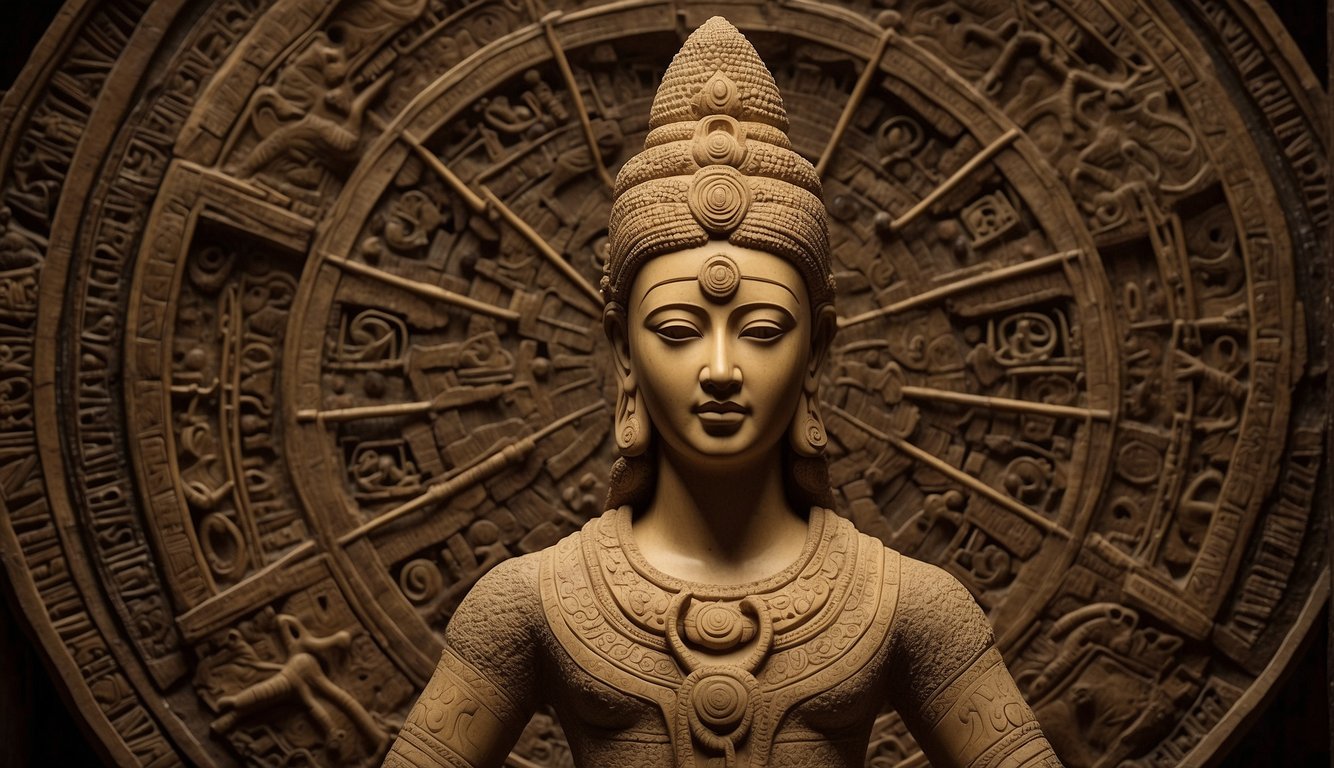
The pineal gland has been a subject of interest throughout history, with many different cultures and belief systems attributing various spiritual and physical properties to it. In this section, I will discuss some of the philosophical and medical perspectives on the pineal gland.
Philosophical Views and the ‘Third Eye’
One of the most well-known concepts associated with the pineal gland is the idea of the “third eye.” This concept has been present in many different cultures throughout history, including ancient Egypt, Hinduism, and Buddhism. In these belief systems, the third eye is thought to be a spiritual center that is responsible for intuition, psychic abilities, and spiritual insight.
René Descartes, a French philosopher, also had a significant impact on the philosophical views of the pineal gland. He believed that the pineal gland was the “seat of the soul” and that it was responsible for connecting the physical body to the spiritual realm. While Descartes’ views are no longer widely accepted in the scientific community, they had a significant impact on the way that the pineal gland was viewed throughout history.
Medical Discoveries and Advancements
While the pineal gland has been associated with spiritual and philosophical concepts throughout history, it wasn’t until the 20th century that its medical properties were fully understood. The pineal gland is a small endocrine gland that is located in the epithalamus of the brain. It is responsible for producing melatonin, a hormone that helps regulate sleep-wake cycles.
Historically, the pineal gland was thought to be a vestigial organ with no real purpose. However, as medical advancements were made, it became clear that the pineal gland played a crucial role in regulating the body’s circadian rhythms. Additionally, research has shown that the pineal gland may play a role in regulating mood, as well as having anti-inflammatory and antioxidant properties.
The pineal gland has a rich history full of philosophical and cultural significance. While its properties were not fully understood until the 20th century, it has played a crucial role in regulating the body’s sleep-wake cycles and may have additional medical properties that are yet to be fully understood.
Pineal Glandular and The Herb Prof
Let’s delve into the world of Sleeplessness and Melatonin, a dynamic duo in the realm of natural remedies, and their unique synergy with our website, theherbprof.com.
Sleeplessness is a common issue that many people face. But don’t lose sleep over it! Nature has provided us with Melatonin, a hormone known for its sleep-regulating properties. It’s like a lullaby in hormone form!
But how does this tie into theherbprof.com? Well, we’re all about sharing the wisdom of herbs. And Sleeplessness and Melatonin? They’re one of the key topics we cover!
We’re a perfect trio, really. Theherbprof.com provides the platform, and Sleeplessness and Melatonin is one of the issues we aim to address. We highlight the benefits of Melatonin for sleeplessness, and it brings a wealth of information to our readers.
So, when you’re exploring theherbprof.com, make sure to visit our Sleeplessness and Melatonin section. It’s a trio that’s as harmonious as a peaceful night’s sleep! And remember, laughter is the best medicine, but a little Melatonin might just be the perfect nightcap! Check it out our home page here!
References:
Little Herb Encyclopedia, by Jack Ritchason; N.D., Woodland Publishing Incorporated, 1995
The Ultimate Healing System, Course Manual, Copyright 1985, Don Lepore
Planetary Herbology, Michael Tierra, C.A., N.D., Lotus Press, 1988
Handbook of Medicinal Herbs, by James A. Duke, Pub. CRP Second Edition 2007
The Complete Medicinal Herbal, by Penelope Ody, Published by Dorling Kindersley
Before You Go – Check the Following Articles!
Frequently Asked Questions – Pineal Glandular

What are the primary functions of the pineal gland?
The pineal gland is a small endocrine gland located in the brain that secretes the hormone melatonin. The primary function of the pineal gland is to regulate the circadian rhythm, which is the internal biological clock that regulates our sleep-wake cycle. In addition to this, the pineal gland has been linked to a number of other functions, including the regulation of mood, the immune system, and the aging process.
How does the pineal gland influence sleep regulation?
The pineal gland’s main job is to help control the circadian cycle of sleep and wakefulness by secreting melatonin. Melatonin is a hormone that is released in response to darkness and helps to promote sleep. As a result, the pineal gland plays a crucial role in regulating our sleep-wake cycle.
In what ways do the pineal gland and pituitary gland differ?
The pineal gland and the pituitary gland are both endocrine glands located in the brain, but they differ in their functions. The pituitary gland is often referred to as the “master gland” because it secretes hormones that control the activity of other glands in the body. The pineal gland, on the other hand, primarily secretes the hormone melatonin and is involved in regulating the sleep-wake cycle.
What symptoms indicate a dysfunction of the pineal gland?
A dysfunction of the pineal gland can lead to a number of symptoms, including sleep disturbances, depression, anxiety, and fatigue. Other symptoms may include headaches, memory problems, and difficulty concentrating. However, it is important to note that these symptoms can be caused by a number of different factors and may not necessarily indicate a dysfunction of the pineal gland.
How is the pineal gland associated with the concept of the third eye?
The pineal gland has been associated with the concept of the third eye in some spiritual and philosophical traditions. This is because the pineal gland is located in the center of the brain and is often referred to as the “seat of the soul.” Some people believe that the pineal gland is responsible for spiritual experiences, such as out-of-body experiences and lucid dreaming.
What causes an enlargement of the pineal gland?
An enlargement of the pineal gland can be caused by a number of factors, including tumors, cysts, and infections. In some cases, an enlarged pineal gland may be a sign of a more serious condition, such as a pineal gland tumor. However, it is important to note that an enlarged pineal gland does not always indicate a serious health problem and may be a normal variation in some people.
